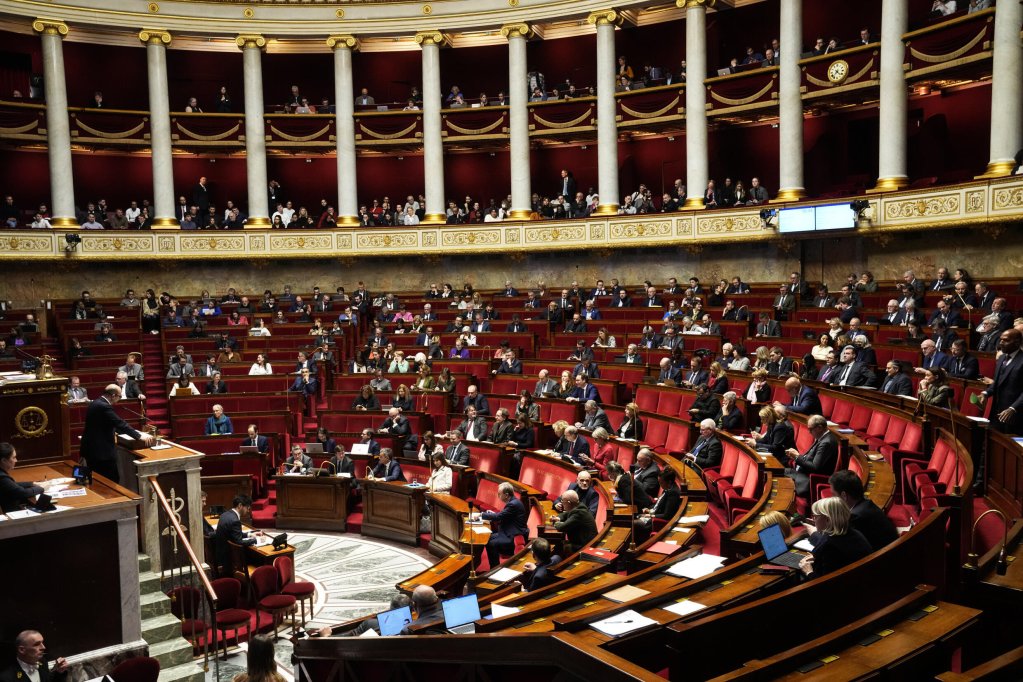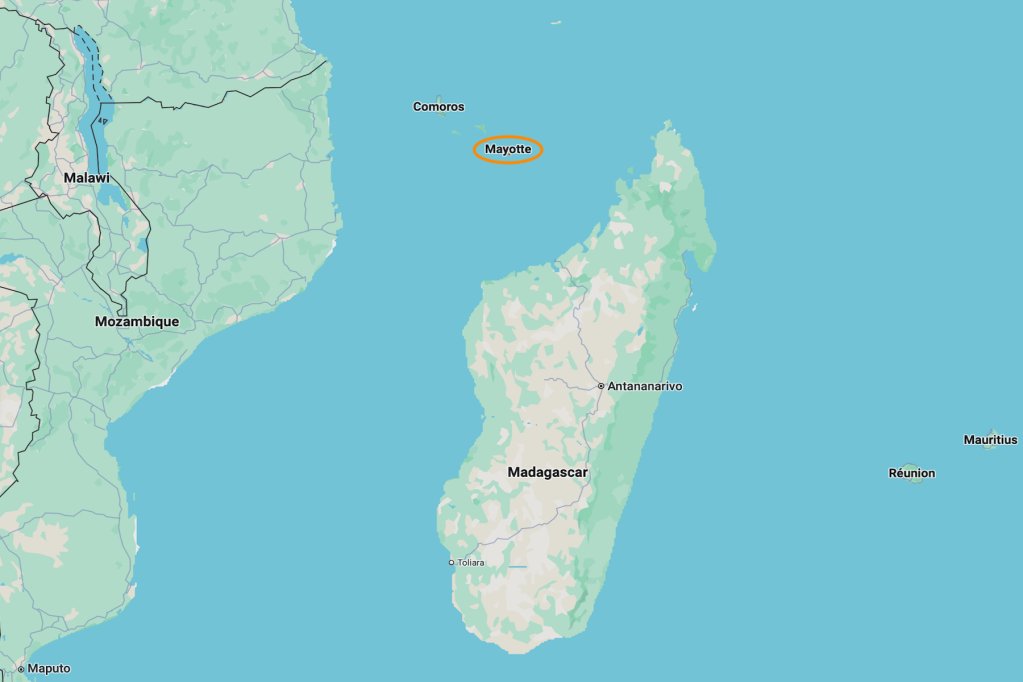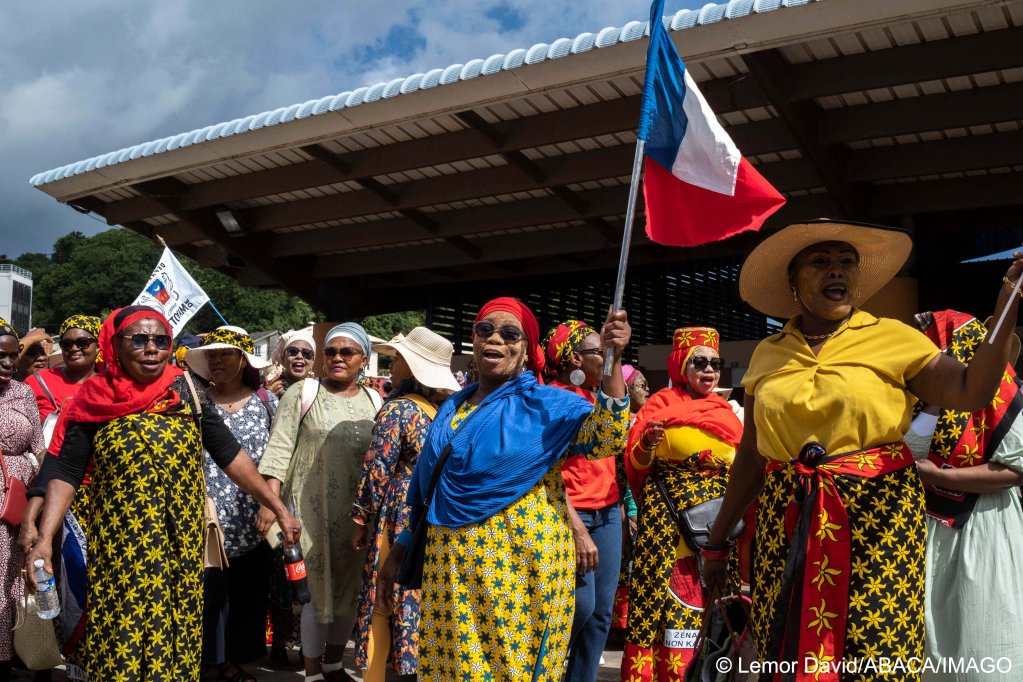The French parliament has adopted a bill limiting access to citizenship for children born in its overseas territory of Mayotte, located in the Indian Ocean. Controversially, the bill only affects children in Mayotte but not those born in France or in any other French territory — though there are mounting calls to expand it further.
The island of Mayotte in the Indian Ocean is regarded as part of the European Union, as it is a French overseas territory. However, it is also a highly impoverished area. It is estimated that there are now more immigrants than actual native inhabitants of the island.
Many foreigners reached the island territory by using irregular means over the years in hopes of eventually be granted residence and later citizenship status in an EU country. These years of migration have led to instances of multiple generations of both irregular and regularized immigrants to Mayotte living under the same roof.
In certain instances to date, one of the ways that people managed to gain regular status was by being born in the French overseas territory; until now, French law stated that any child born in France — including Mayotte — to a foreign parent could be granted French nationality from the age of 13, if they had spent sufficient time in any French territory and if the parent fulfilled certain requirements.

This legal groundwork is known as the "right of territory" or "ius soli," and has been part of French law in its previous form since the 1990s — although the principle behind it dates back to the early 19th century.
However, in the case of Mayotte, things are now about to change.
Read AlsoFrench immigration reform: The main provisions of the law
Mayotte: 'a laboratory for the far-right'
Until now, French law demanded that children born in the overseas territory needed to have at least one parent who had resided there legally for at least three months at the time of birth in order to qualify for French nationality later.
The new bill signed off both by the National Assembly and the Senate now dictates that both parents will need to have legally lived in Mayotte for at least a full year — except for single parents, in which case it will be sufficient for the single parent to have been legally living in the overseas territory for a year.
The bill however has attracted criticism as it only applies to cases in Mayotte and does not affect immigrants in the rest of France, at least for the time being.

Some critics fear that the bill could pave the way for similar restrictions to be introduced at a later date nationwide. Green Party member of parliament Dominique Voynet said the bill would amount to "the end of the right of territory in France."
"Mayotte is about to become a laboratory for the ideas of the far-right," she added in a statement.
Read AlsoFrance: What is the 'illegal residence offense' that Bruno Retailleau wants to reinstate?
Widespread political support for new law
The parliamentary leader of the far-right National Rally party, Marine Le Pen, who is known for her staunch anti-immigrant rhetoric, however claimed that the new law would only have minimal impact on France’s overall immigration figures, proposing instead that the legislation should be expanded "to simply ban the right of territory across all national land" instead.

This sentiment was echoed earlier by Justice Minister Gerald Darmanin from the centrist Renaissance Party, who said that the French constitution should be changed to end most ius soli citizenship rights granted to people born in French territories.
A lawmaker from the right-wing Republican Party who originally proposed the new bill; Philippe Gosselin had argued that the previous legislation had served as a pull factor for migrants coming to the archipelago in the Indian Ocean:
"The prospect of obtaining French nationality is an undeniable factor in irregular migration" to the overseas territory, he said at the time of its inception.
Read AlsoFrance: Migrants facing difficulties created by new digital registration system
12 territories run by Paris
Of an estimated 150,000 to 200,000 foreigners with various levels of official status papers in Mayotte, at least 50,000 are believed to have been born there. The new law would in particular affect those who are too young to qualify under the existing ius soli laws.
In addition to Mayotte, France has another 11 overseas territories: Guadeloupe, French Guiana, Martinique, Reunion, New Caledonia, French Polynesia, Saint Barthelemy, Saint-Martin, Saint-Pierre and Miquelon, the French Southern and Antarctic Lands, as well as the Wallis and Futuna islands.
Altogether, according to the French National Statistical Office, there are about 2.6 million inhabitants in these regions put together — with some of these territories enjoying a higher standard of living than others.

Generally speaking however, it is widely accepted that Mayotte is the most impoverished region of France, making the introduction of the new law a particularly sore political subject.
At this point, the new law is limited to Mayotte, though it is unclear which of these territories any potential future expansion of the legislation might next affect.
For a similar law to be applied to mainland France, the constitution would have to be adapted accordingly, which would be more time-consuming and would require more steps than the legal changes applied to Mayotte.
Read Also
Aftermath of Mayotte cyclone 'will be complicated,' say fearful migrants
Aftermath of deadly cyclones
Mayotte is also still reeling from a series of natural disasters, including two devastating back-to-back cyclones in late 2024. Following these catastrophic events, communicable diseases have been rife in the region, with access to clean water remaining one of the main problems.
In the aftermath of the cyclones, migrants expressed a heightened sense of fear of being deported. There were scores of reports of migrants who evaded seeking seek shelter in government facilities due to rumors that these actually were a ruse to gather them for deportation.
On April 8, Executive Vice-President of the European Commission for Cohesion and Reforms, Raffaele Fitto, visited Mayotte and said that despite pledges by French President Emmanuel Macron to help those affected by recent events — including many migrants — there was still a sense of "systemic neglect."
During his trip, Fitto stressed that "the European Commission stands with you, and together we will restart growth."
Fitto did not comment, however, on the French plans to change birthright citizenship.
Read AlsoUNHCR: Cyclone Chido has displaced 'thousands' in Mozambique
with AFP
